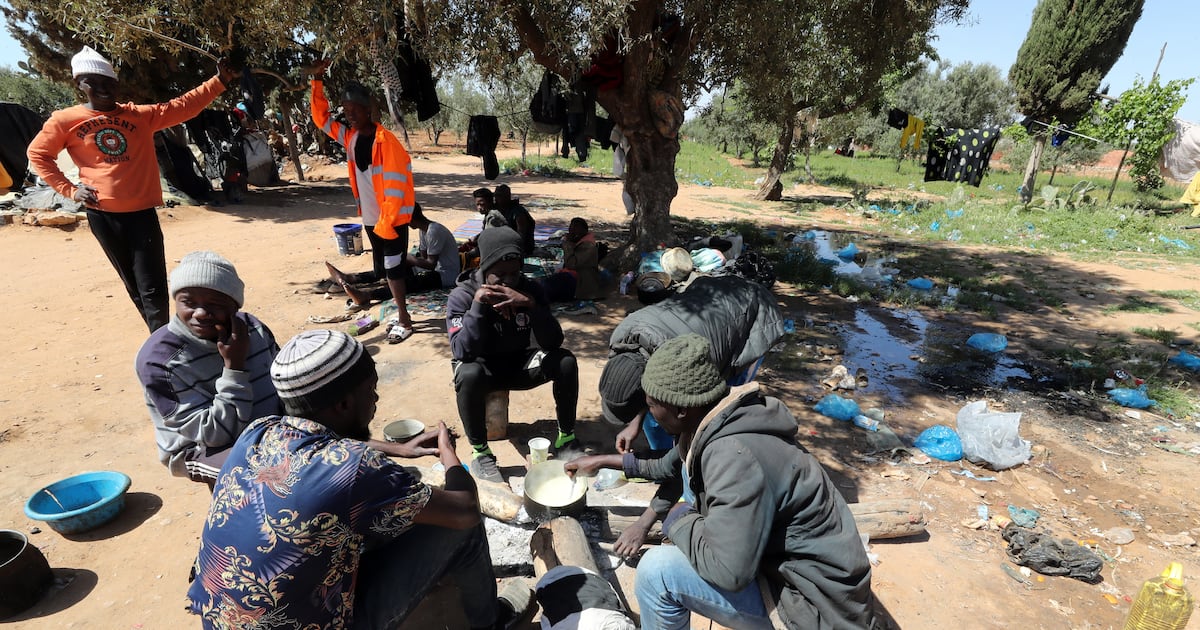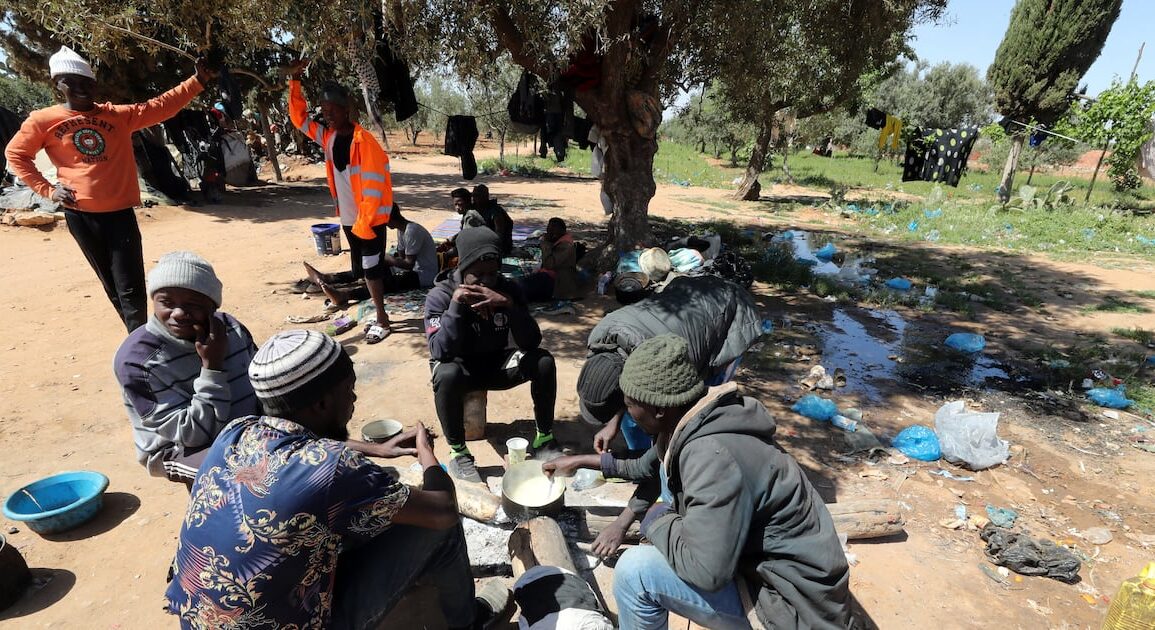
Lawyers, activists and relatives of jailed Tunisian politicians on Tuesday said they had asked the International Criminal Court (ICC) to investigate Tunisian authorities over suspected crimes against humanity, part of an alleged campaign against black migrants.
The North African country has received EU funds to help it prevent migrant departures towards Europe. But the situation in Tunisia has worsened since October 5 last year when the group filed a submission focusing on the what it said was a crackdown and repression of political opponents in Tunisia, lawyer Rodney Dixon said at a press conference.
Mr Dixon said the group had gathered ample evidence of breaches which it had not made public to protect the identity of alleged victims in Tunisia, which is a member of the ICC. “It’s up to the ICC prosecutor to decide whether to open an investigations,” he said. “We allege the evidence we gathered amounts to crimes against humanity.”
Authorities in Tunisia, where a presidential election is taking place on October 6, “are seeking to silence any criticism happening politically, economically but also in respect of the migrant situation as well,” Mr Dixon said. The group had drawn the ICC’s attention to a number of high-ranking officials it says are responsible for expulsions and mistreatment of black migrants. They include President Kais Saied and the heads of the army and the national guard.
An investigation by the ICC, based in The Hague, the Netherlands, would make it harder for international bodies such as the EU to continue working with Tunisia, said Mr Dixon. Last year, the President of the EU Commission, Ursula von der Leyen, said the bloc would offer Tunisia €105 million ($115 million) to fight people smuggling and enable returns of would-be migrants.
“What the ICC does is forensic, they look at evidence,” said Mr Dixon. “If they can provide that to politicians, they have to take it seriously. If no one is investigating it independently and objectively, it’s easier for those at the political level to ignore realities.”
David Yambio, co-founder of Refugees in Libya, said it was important to defend refugees in Tunisia because they may be sent to Libya or Morocco. “A chain of pushback has been happening,” he said. “A number of [these people] have been left to die, a number of them have been dumped in the desert.” Human rights groups and media reports have accused Tunisia of conducting illegal pushbacks of migrants into the desert using EU funds.
Yusra Ghannouchi, the daughter of imprisoned politician Rached Ghannouchi, 83, accused Mr Saied of being responsible for the repression of political opponents and migrants. “The cause is dictatorship,” she said.
The election in two weeks will be a test for Mr Saied, she added. “We still hope that these elections will be watched closely and that if there is any falsification of results, they’ll be recognised as illegitimate.”
This post was originally published on this site be sure to check out more of their content.









